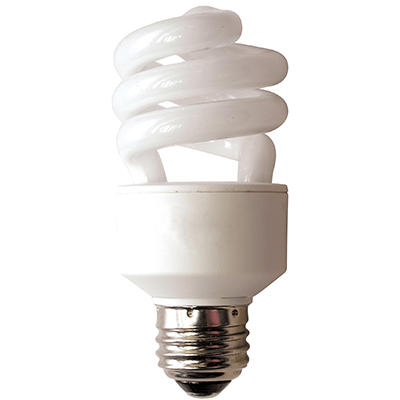
Because they are a greener alternative to traditional light bulbs, fluorescents have become increasingly popular in homes and businesses. This category includes fluorescent lamp tubes or bulbs. Fluorescent lamp ballasts are also considered a part of this category.
The danger with these bulbs is that they contain small amounts of mercury, a potent, developmental neurotoxin that can damage the brain, liver, kidneys and central nervous system, especially in infants and young children.
The bulbs are perfectly safe as long as the glass is not broken and for that reason it is important to be especially careful when disposing of spent fluorescent bulbs. Since they contain mercury, fluorescent bulbs should be recycled in order to ensure that they stay out of landfills where they could contaminate the air, soil and/or groundwater.
The EPA provides a few reasons why is Recycling CFLs Important as well. Recycling prevents the release of mercury into the environment. CFLs and other fluorescent bulbs often break when thrown into a dumpster, trash can or compactor, or when they end up in a landfill or incinerator.
Other materials in the bulbs get reused. Recycling CFLs and other fluorescent bulbs allows the reuse of the glass, metals, and other materials that make up fluorescent lights. Virtually all components of a fluorescent bulb can be recycled.
Your area may require recycling. Some states and local jurisdictions have more stringent regulations than the U.S. EPA does, and may require that you recycle CFLs and other mercury-containing light bulbs. California, Maine, New Hampshire, Minnesota, Vermont and Massachusetts, for example, all prohibit mercury-containing lamps from being discarded into landfills.
Some examples include:
- CFLs (Compact Fluorescent Lamp), U-Bends, Circular
- 4’ and 8’ fluorescent lamp tubes




